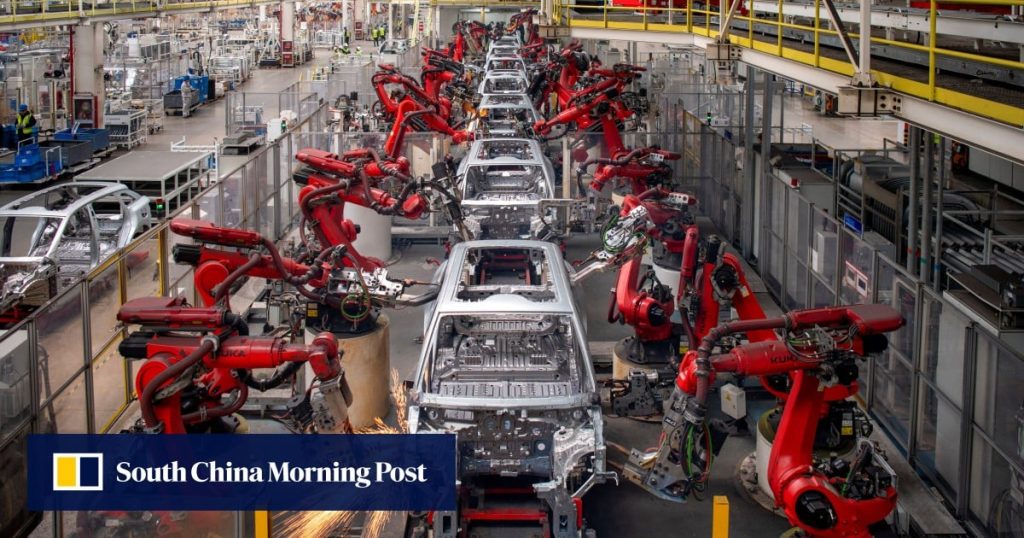With Beijing having spent the past decade finding ways to bolster the nation’s technological independence through its “Made in China 2025” (MIC2025) initiative, European companies with a stake in the world’s second-largest economy have watched with growing concern – fearful of becoming further marginalised.
“Continued use of MIC2025-style policy may create further tension at a time when globalisation is being challenged,” Jens Eskelund, president of the European Union Chamber of Commerce in China, said on Wednesday.
In China’s pursuit of technological strides – aiming to be a global leader in some sectors, as outlined in MIC2025 plans – foreign companies are sometimes seen as a valuable bridge to more advanced tech. But China’s rapid progress has fuelled concerns that foreign firms may be excluded once that complementary edge is gone, the EU chamber has said in a report titled “Made in China 2025: The Cost of Technological Leadership”.
China should avoid increasing trade imbalances with the EU and exacerbating trade tensions through “made in China” requirements, the chamber report said.
“Once Chinese companies have comparable technology, market-access restrictions or an inability to compete can lead to a significant loss of market share for foreign companies,” said the chamber’s report.
Although China has achieved a high degree of self-reliance in only a few sectors, the chamber noted that China has been intent on undoing dependencies on key foreign technology and that it was likely to continue marginalising foreign companies in strategic sectors.


